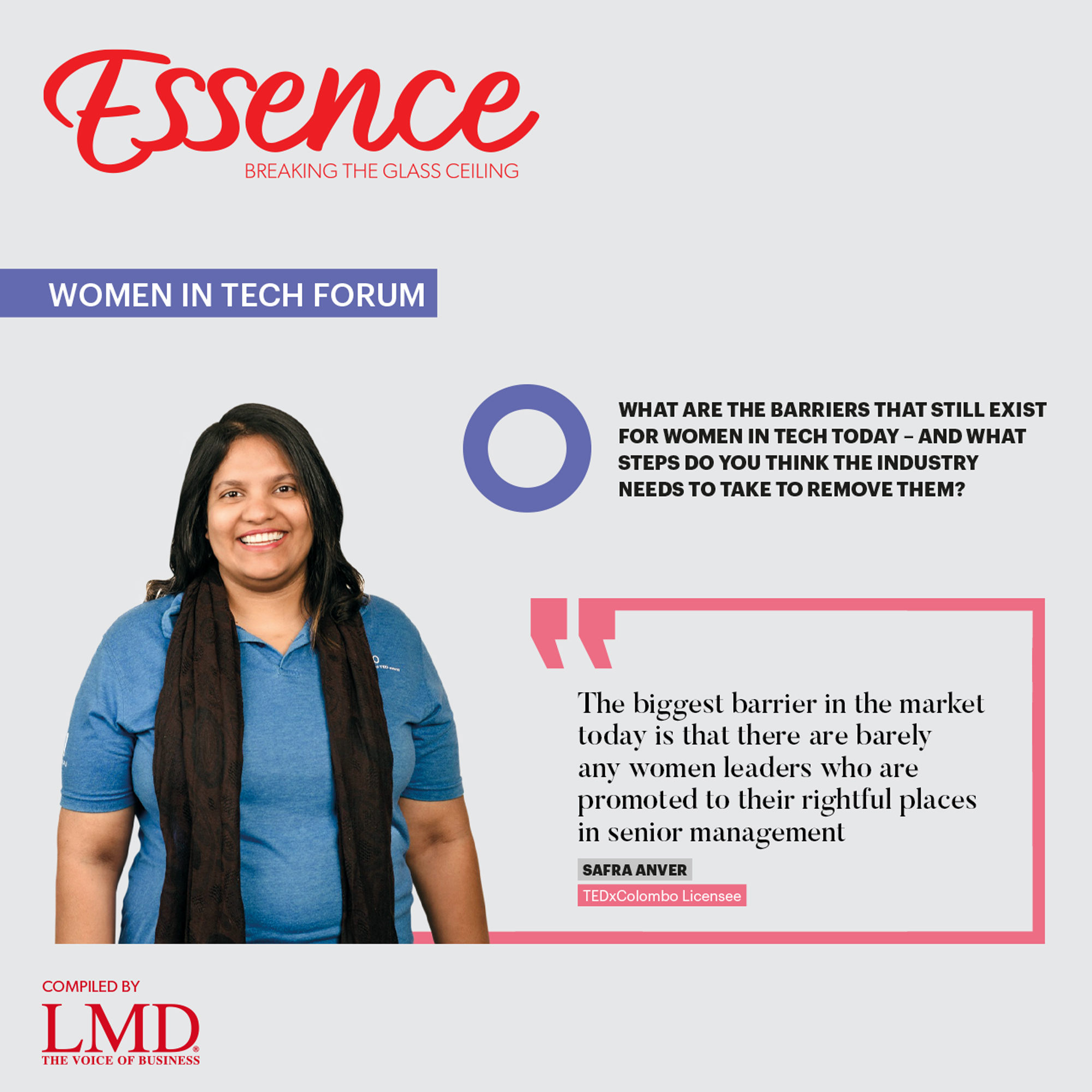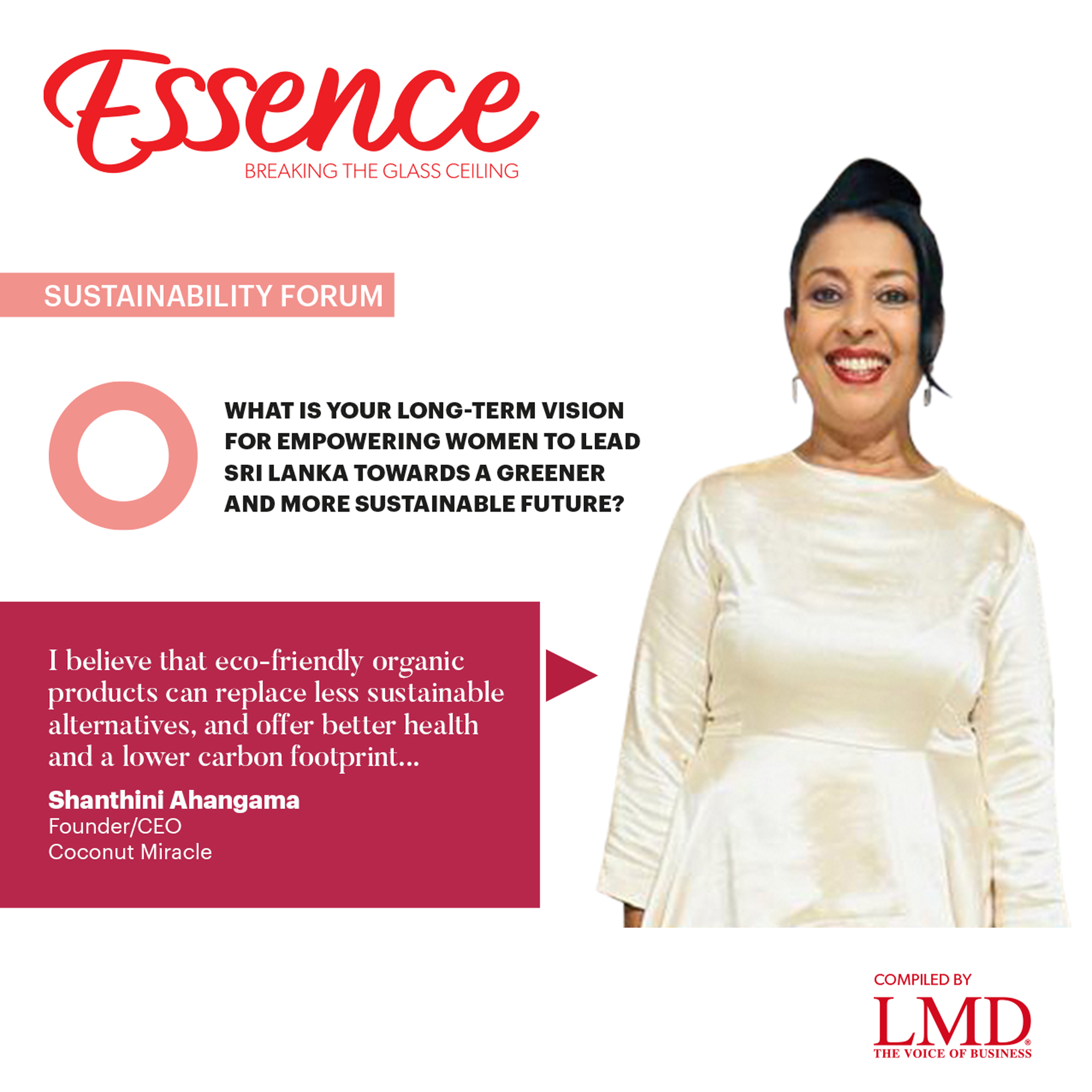CBH LANDS
 Q: In your assessment, what is the extent of participation of women in conventional and non-conventional fields in the local context?
Q: In your assessment, what is the extent of participation of women in conventional and non-conventional fields in the local context?
A: I take my cue from history. In pre-colonial times, we had powerful queens such as Queen Kuveni, who held power and riches, and was a working queen spinning fabric. In essence, she was an executive queen.
Somewhere along the way with British influence, we regressed into defining what was conventional and non-conventional for women in every sense.
Young boys need to be taught that girls are also strong, and should work and pursue their dreams! That way, if they’re married one day, men will support working wives so that they need not step back at mid-career.
The gender balance in most sectors in Sri Lanka isn’t ideal and needs urgent correction. Thankfully, there is a clear shift at the family level with girls being encouraged to complete their higher education. We have to encourage women to monetise their strengths and talents if it makes them truly happy.
Q: Could you describe your take of the business climate in Sri Lanka from the perspective of a woman entrepreneur?
A: There are some women’s recognition forums that encourage greater female participation. Moreover, the Central Bank of Sri Lanka facilitated a low interest rate regime that women can take advantage of to launch or scale up their businesses.
Additionally, women have the ability to own property, which is a great benefit that they should take advantage of.
And since imports will be restricted for the foreseeable future, women entrepreneurs can look to fill the gap with products that are in demand.
Q: Do you believe that women receive sufficient support in terms of maximising their potential and curtailing the loss of employees at mid-career?
A: Sri Lanka has employers who truly believe women are equal, as well as others who discriminate against females by suggesting that they will leave at mid-career to have children and other such stereotyped beliefs.
Much more needs to be done in terms of extending equal opportunities, and introducing flexible hours and such to ensure that women remain in the workforce and can still manage their household responsibilities as well.
Q: How crucial is it for women to assert themselves as valued members of the business world?
A: It’s not enough to demand to be treated equally. There is a need to also truly believe it and demonstrate that women are no less than men in any way in the workplace.
I learnt some crucial lessons at my first job in the US. My boss at the time told me that I must learn to be on equal terms with men by being assertive at meetings, expressing my opinion and not being afraid to demand greater responsibility. I’d regularly request to review my career growth chart and ask what more I could do to climb the ladder.
Q: What is your vision for businesswomen in Sri Lanka?
A: My wish is to see women succeed in any career they choose. I would also like to see women creating wealth for themselves by becoming strategic investors.
Both men and women should encourage and support successful females – after all, they make powerful role models for other aspiring women.
 Q: Do Sri Lankan women have the potential to go global, in your opinion?
Q: Do Sri Lankan women have the potential to go global, in your opinion?
A: I believe that they absolutely have the potential to go global!
Whether a woman is a businesswoman, a CEO, an athlete, an artist, a chef, a model or a fashion designer, she should not be shy to pursue her dream or get stuck in the ‘this is enough’ paradigm. The more successful she is, the more people can help.
Furthermore, Sri Lankan women should apply for global events and competitions without doubting themselves, or their products and services. There is a new trend across the world in the form of supporting female inspired and ethically sourced businesses, which Sri Lankan women should leverage.
One major obstacle I see is the skills gap; a college degree is not enough – practical skills are necessary, and women should be open and eager to gain new skills, to enhance their knowledge and final output.





